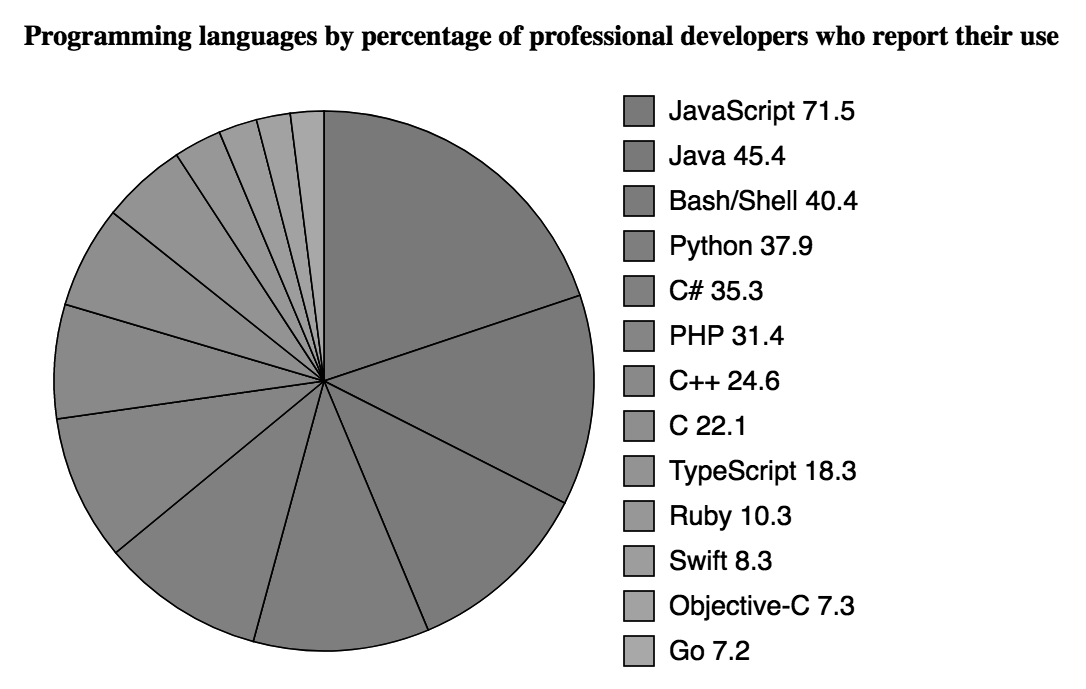Journey to the West
- An entertaining story but painfully long
- The covenant
The outsider
JavaScript: the definitive guide
- Insanely comprehensive
- Contains this chart (more or less):

Slaughterhouse fiveAmerican godsThe art of war
Mindstorms
Structure and interpretation of computer programs
- I wish I had found this five years earlier.
- Lingua Latīna per se illustrata pars I: familia rōmāna
-
Lingua Latīna: a companion to
familia rōmāna
The Gutenberg galaxy: the making of typographic man
- A very badly written book
The essentials of programming languages
- The second chapter is adding ADTs to Scheme.
The lady of the lake
The visual display of quantitative information
- Beautiful and full of wisdom
An updated guide to the Pupil Premium
Gödel, Escher, Bach: an eternal golden braid
- Many boring chapters
- This book destroyed my philosophy of mathematics, despite never using the word “philosophy”.
Previously, I had thought that a mathematical truth was merely an implication.
I now know that inference rules are necessary and separate from axioms.
This means that the question of mathematical realism is an actually difficult problem, which shouldn’t have been too surprising.
I don’t have a metaphysics (and I don’t believe science has one either, yet), although I am convinced that concepts like “man”, “woman” and “chair” are definitely not real.
The structure of scientific revolutions
- Kuhn describes science as long periods of “normal science”, followed by reformulation in response to crisis (“paradigm shifts”).
- But you knew that already. More interestingly, he views scientific progress as the resolution of internal contradictions, rather than the search for truth. (He explicitly makes a comparison with theology.)
- I did not understand the examples from chemistry. (Those from physics were more approachable.)
- Orality and literacy
-
Ong (the original author) clearly knows his stuff but Hartley (writer of two additional chapters, Before Ongism and After Ongism) mistakenly refers to Cuneiform as “alphabetic writing”.
This is especially infuriating as Ong himself considers the distinction between alphabets and other scripts extremely important.
From reading the Hartley chapters, I came to the conclusion that academia seems resigned to the end of the “Gutenberg parenthesis”, that is, that modern technology is returning humanity to illiteracy.
- The printing press as an agent of change
- A history of the printing press’s effects on everything but politics
-
The revolt of the public and the crisis of authority in the new millenium
- Fābulae Syrae
- Born on a blue day
- The art of computer programming
Tao te ching
- Anathem
- The republic
- Man’s search for meaning
The prince
- I read it as saying that the incentives of autocracy cause leaders to act immorally.
Terra ignota
- A tetralogy
- Palmer continues the rise in individualism into the twenty-fifth century.
Family and state are chosen by humans rather than the Moirai and religion is viewed almost solely as metaphysics.
- She again and again produced ideas that immediately seemed to be the correct solutions to problems: hives, the Olympics, minor senators.
- Terra Ignota has affected me more than any other work of art I can think of.
- Vive les ruches!
- The histories
- The Nicomachean ethics
- Canterbury tales
- English essays from Sir Philip Sidney to Macaulay
- Famous prefaces
- Pride and prejudice
- The Odyssey
